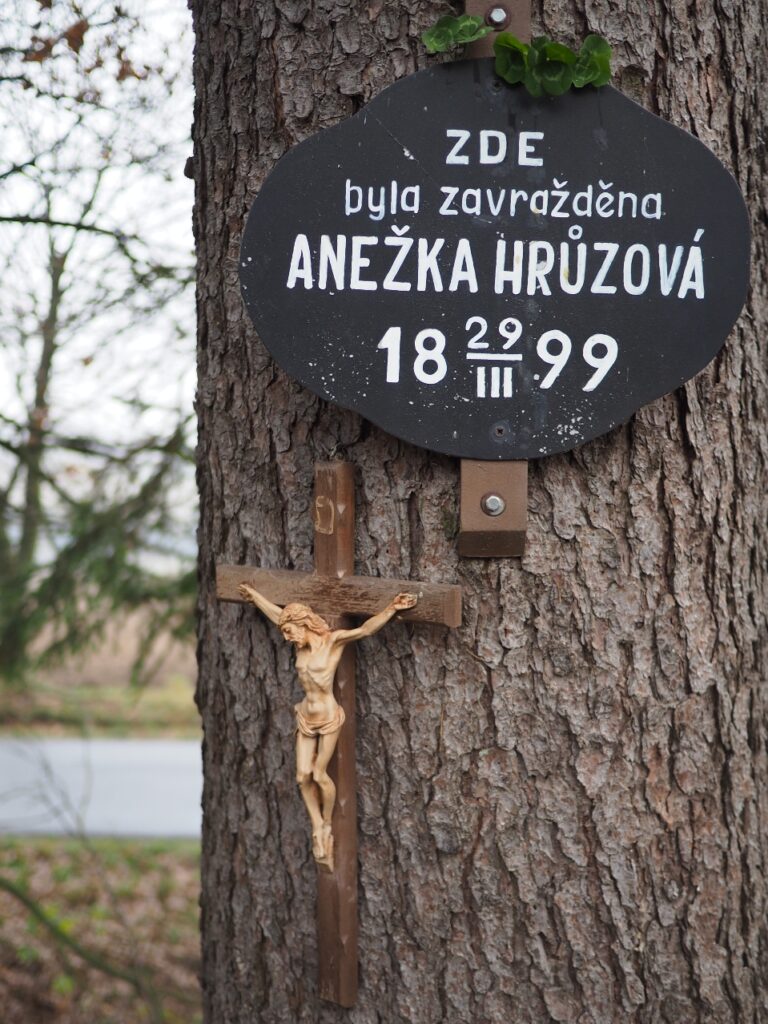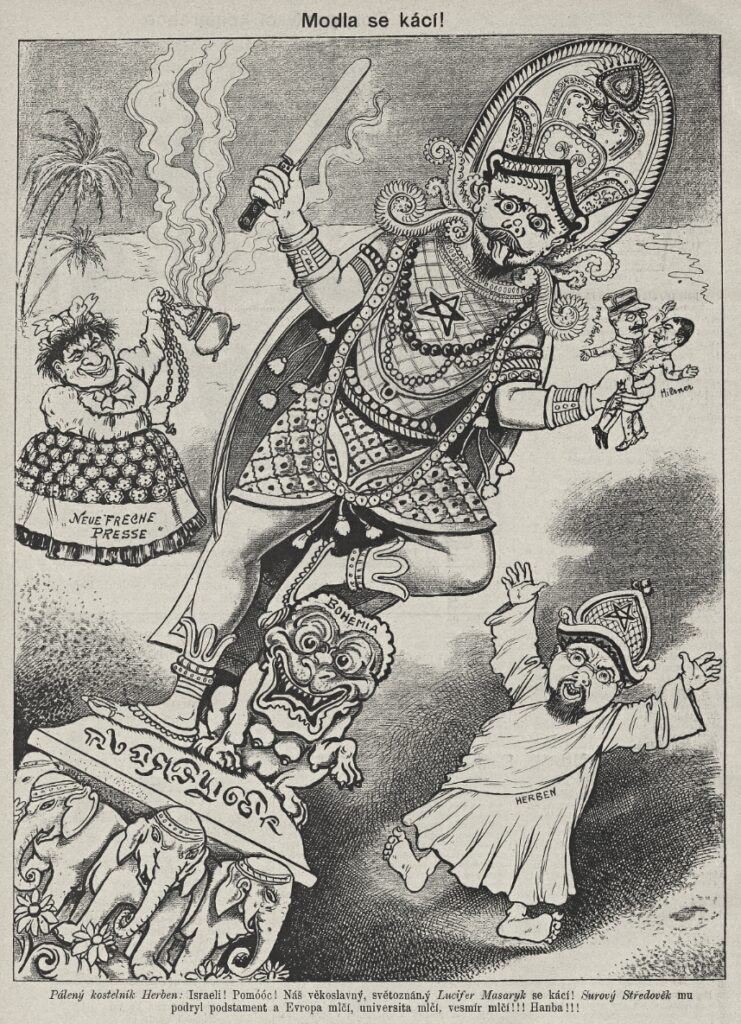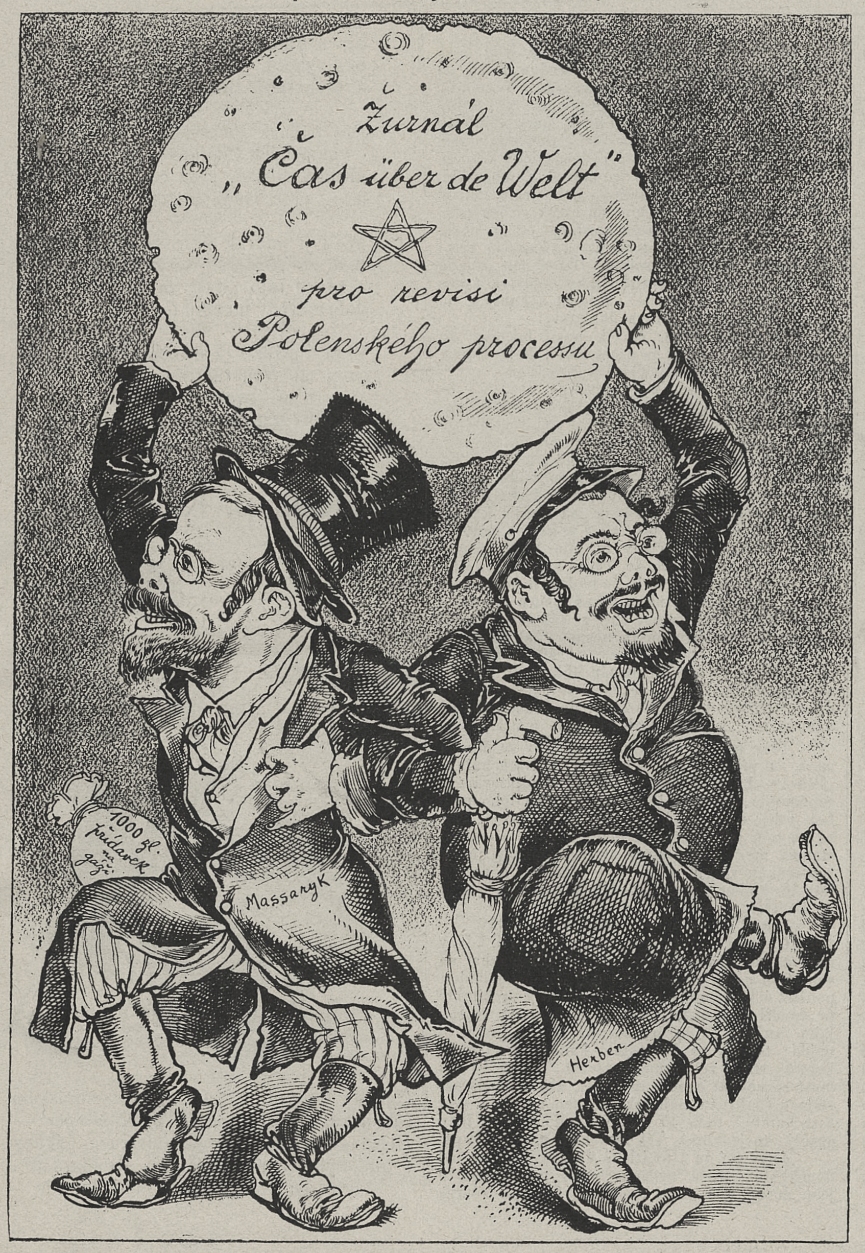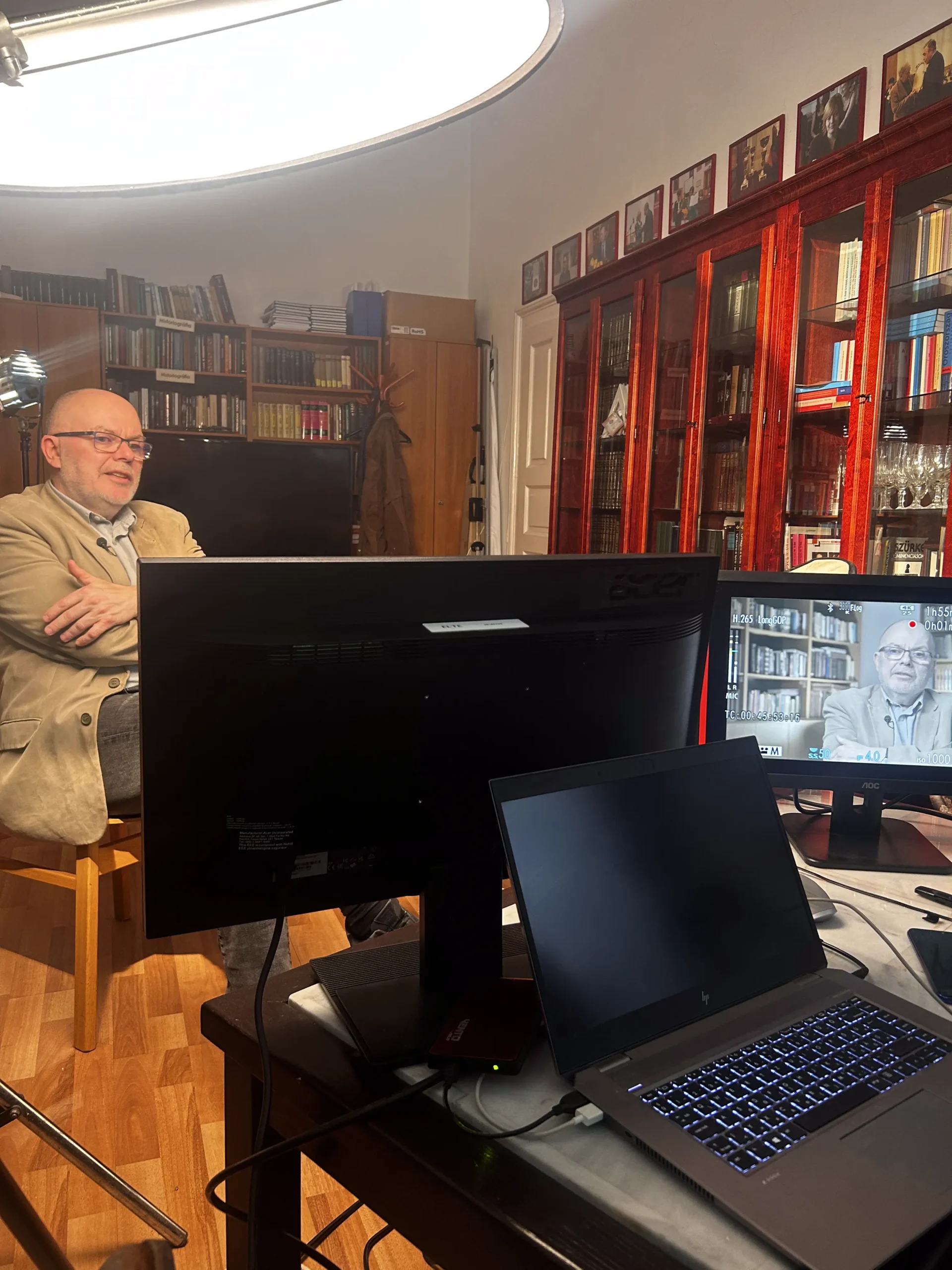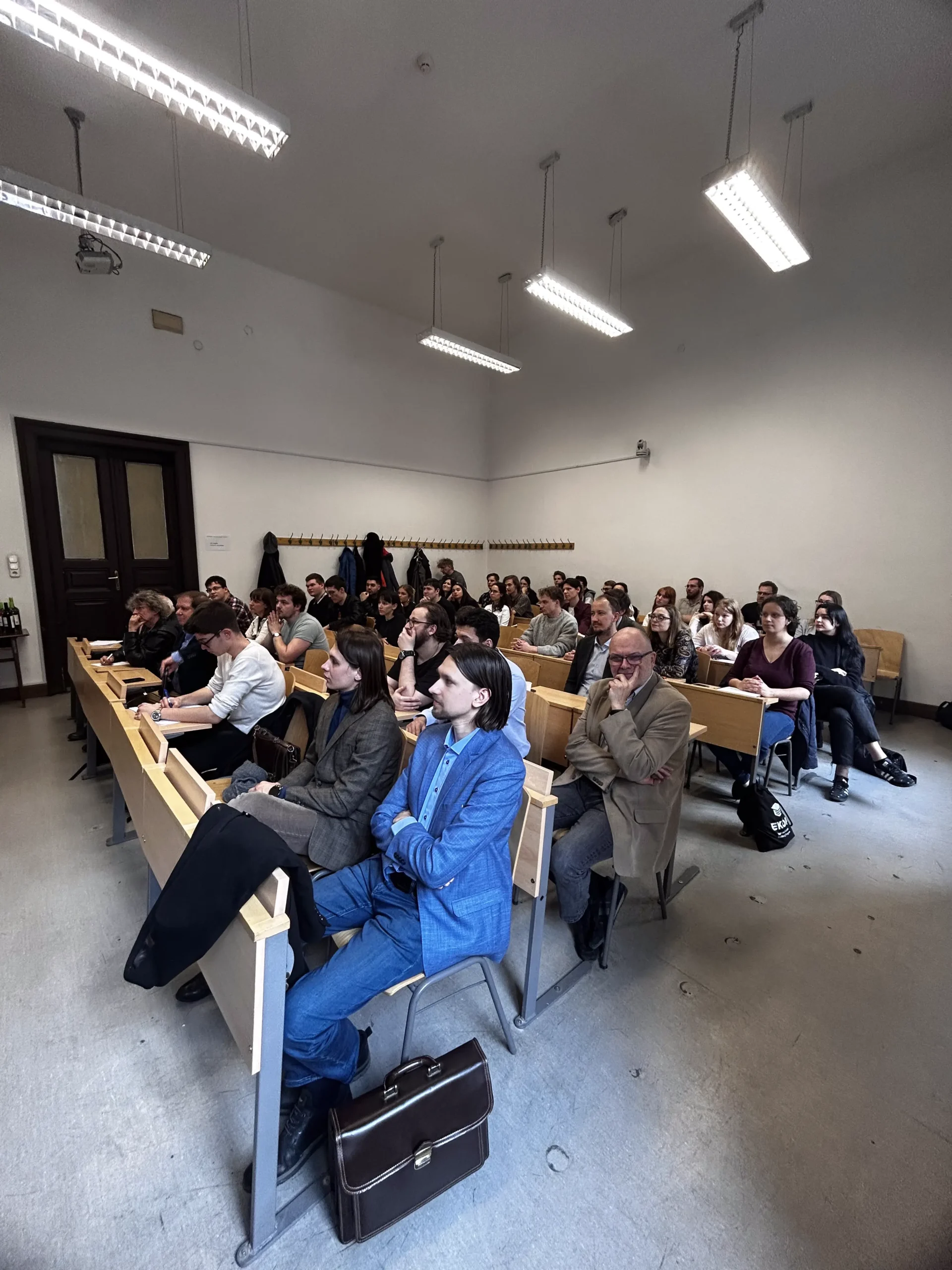The Hilsner Affair and Modern Anti-Semitism in Czech Culture – Polná
Fact of the Czech figure „Racial genocide in occupied Czech lands”
Part of the „The Holocaust” topic
In the late 1890s, European public opinion was inflamed by the Dreyfus Affair in France. The affair revealed the deep-rooted anti-Semitic superstitions and hatred of Jews among Europeans. A wave of anti-Semitism was also stirred up also in the Czech lands at in connection with a serious crime. On 1 April 1899, before Easter, the dead body of a nineteen-year-old seamstress, Anežka Hrůzová, was found in a wood near the eastern Bohemian town of Polná. The girl had not been raped. Leopold Hilsner, a worker and vagrant of Jewish origin, was accused of the murder and, according to the indictment, he and his never-identified accomplices were charged with ritual murder. The trial took place in Kutná Hora in the atmosphere of a virulent anti-Semitic campaign unleashed by Catholic and nationalist journalism, and the jury sentenced Hilsner to death.
The verdict was based on circumstantial evidence, and Hilsner’s lawyer called for a review of the trial. A small group of intellectuals, led by Tomas G. Masaryk, a professor of philosophy at the University of Prague, also protested against the verdict. Masaryk did not dispute Hilsner’s possible guilt, but strongly rejected the motive of ritual murder on the grounds that it was an old and unproven superstition. He and his friends immediately became the target of hateful attacks in the Czech nationalist and Catholic press, at the university and in private.
The higher court in Vienna overturned the verdict and referred the case to the regional court in Písek. In a new trial, Hilsner was convicted of murder – again without any direct evidence – as an alleged sexually motivated offender. To this day, there are doubts that this was a miscarriage of justice. Hilsner was sentenced to death, which was commuted to life imprisonment by Emperor Franz Joseph II. After 19 years in prison, Hilsner was released thanks to an amnesty granted by Emperor Charles I. He died in Vienna in 1928.

